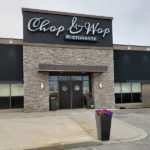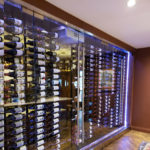Often times, the only difference between floating and drowning is the direction you’re facing. Without restaurant performance measurement, a restaurant may be face down without even knowing it.
Restaurant performance management measures metrics such as profits and losses, cash flow, cost of sales and cost of labor. By assessing this data, operators can evaluate their finances and establish systems and structures to keep their restaurant afloat.
Restaurant Performance Metrics
Profits and losses
Whether they are produced monthly or weekly, profit and loss statements give restaurant operators a broad overview of their sales history.
But the information only becomes useful when broken down to reflect cost of sales, cost of labor and other overhead costs. A restaurant financial analysis assesses profits and losses with a critical eye to determine specific areas that should be improved upon.
Cost of sales
A restaurant’s cost of sales, sometimes referred to as cost of goods, is the sum of all expenses associated with producing the menu items.
Should food costs be running at 20 percent or 40 percent? The answer can vary depending on a restaurant’s positioning (fast casual, casual or upscale) and menu mix.
We can help operators determine where their cost of sales should be by building theoretical food and beverage costs.
Cost of labor
Cost of labor is another contributor to cost of sales. A fine line exists between overstaffing a restaurant and scheduling enough employees to run a restaurant effectively. Sensible scheduling and employee productivity are the best ways to control cost of labor. In addition, tools should be available to assess mid-shift needs.
Many restaurateurs are reluctant to phase out employees in a timely fashion. Restaurant financial analysis can review payroll reports, sales reports and customer counts to optimize scheduling and productivity and to decrease cost of labor.
When to Implement Restaurant Performance Measurement
Opening a new restaurant
When opening a restaurant, restaurateurs can use financial analysis to predict the restaurant’s success. A restaurant financial consultant can draft a five-year plan and financial forecast based on industry and segment standards.
Financial analysis can also be used to establish financial systems for a new restaurant. Controls for cash handling, inventory, payroll and daily sales reconciliations should be established well in advance of a restaurant opening.
By implementing these systems early in the game, a restaurant can effectively monitor them, giving it a greater chance of succeeding financially.
Purchasing an existing restaurant
Before purchasing an existing restaurant concept, restaurateurs should conduct financial analysis and feasibility studies to determine the profitability potential of the operation.
This can be estimated by evaluating patterns and trends in the restaurant’s past performance and estimating the effect of anticipated changes.
Running an operating restaurant
Restaurant performance measurement is not just for new operations. Generally, it is most beneficial for restaurants already in operation.
Whether a restaurant has been in business for one year or 20, analysis can help identify losses and hidden costs.
That information will help establish appropriate financial systems or refine existing ones to keep money from slipping through the cracks.
Selling a restaurant
An existing restaurant that is looking to sell can undergo financial analysis to supply proof to potential buyers that the restaurant has been financially successful in the past and will offer a healthy return on investment.
Who can help with restaurant performance measurement
Restaurant performance analysis shouldn’t be performed by just any financial consultant. It is best to work with a consultant who specializes within the restaurant industry. The main goal is to help operators understand how their restaurant can become more profitable. A restaurant-specific consultant can explain the analysis process and the findings in terms that restaurant operators will understand.
Financial consultants will know the target performance metrics for specific restaurant categories and the industry as a whole. They can provide guidance for the selection and implementation of point-of-sale and accounting systems and show operators how to get optimum results from these systems.
A financial consultant can help restaurant operators build the necessary tools to pull and analyze their own financial reports. Ultimately, financial analysis should be ongoing, becoming an everyday part of a restaurant’s thinking.
Restaurant performance measurement doesn’t just keep a restaurant afloat, it helps its business soar.







